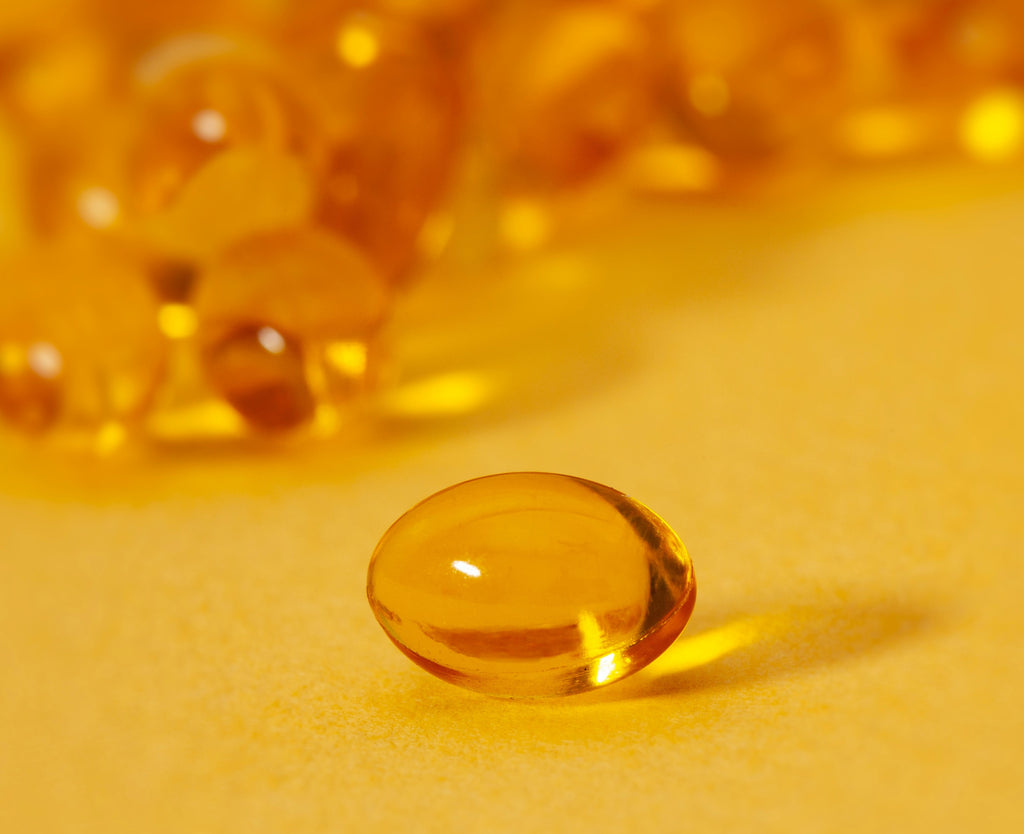Capsules, liquid, powder: all of the various forms that vitamins come in. Not to mention the vitamins that are found in the food we eat. With all the different options it’s hard to determine which one is the best. Is there really universal best form when it comes to vitamins? One that is preferred over all others. Do you even need vitamins? Can’t we get everything we need from the foods we consume? The simplest answer is that there are pros and cons to everyone and it’s important to know them so you can make a well-informed decision.
Capsule
There are actually subcategories when it comes to capsules. Capsules come in two different forms; hard-shell capsules (two piece) and soft-shell capsules (one piece). The hard-shell capsules are usually made with gelatin and contain dry ingredients; some even have small pellets inside. Soft-shell capsules or gel capsules contain liquid ingredients or ingredients that have been dissolved in oil.
Some people prefer capsules over other forms of vitamins simply because of the taste. While some have a slight aftertaste, they are pretty easy to swallow (pun not intended) on both counts. The taste is very minimal and the texture makes it easy to swallow. The downside to capsules is that, unlike liquid vitamins, the body only absorbs around 10-20% of the nutrients. This is due to the capsules having to pass through the digestive system. Some individuals, especially vegetarians and vegans, don’t like the gelatin shell. Gelatin is made from collagen which is a protein present in the tissues of animals (typically cows). Manufacturers have taken notice of this and have introduced VegiCaps. From the name you can deduce that these capsules are an alternative to the gelatin capsules and are veggie based making them a very appealing to a large group of people.
Powder
Powder vitamins are a big hit particularly due to their convenience. Now that may seem like an incorrect statement because you have to mix them with something, but if you are one of those individuals that take many supplements at once, it may be easier to down a vitamin-spiked drink than to take 10 or more pills. Of course this form can be mixed with a drink of your choosing so you are almost guaranteed to enjoy this taste over some of the forms of vitamins available. Another point in powder vitamins’ favor is the ability to adjust the dose. Unlike capsules, especially gel capsules that you are unable to break, powder can be taken in a variety of doses depending on your needs. Also, powdered vitamins last longer/have a longer shelf life than liquid and soft-shell capsules.
When it comes to cost powders land somewhere in the middle. They are not as inexpensive as capsules, but they are definitely not as much as liquids. Similar to capsules, powdered vitamins have to be digested before entering the blood stream which again means that you are not absorbing the majority of the nutrients in the powder. Another downfall of powdered vitamins is the packaging. Most powders come in big, bulky containers which make it difficult to store and even more difficult to travel with.
Liquid
Liquid vitamins tend to be the least common in use, but may have the best rating when it comes to absorption. The body absorbs about 98% of the nutrients in liquid vitamins compared to the 10-20% from capsules. This is because the vitamin can bypass the digestive process and go straight into the bloodstream. For liquid vitamins, absorption starts in the mucous membranes in the mouth and throat. Liquid is also preferred over the other forms in those individuals that are unable to swallow pills or who would prefer not taking “horse pills”. It’s also a feasible option for babies. Similar to powdered vitamins, the dose can be adjusted according to the individual’s needs.
One of the biggest disadvantages of liquid vitamins is the short shelf life. They lack the preservatives, and vitamins tend to break down in liquid so these don’t usually last beyond a month or two before losing potency. Like powders, liquid are typically harder to travel with. They are normally packaged in a glass bottle which increases the risk of breaking, as well as the weight of the bottle. When it comes to cost liquid vitamins are among the most expensive. The cost is due to the packaging and storing of the liquids.
Food
There is another way to intake vitamins and that is by what you eat. We all know things like oranges and strawberries are high in Vitamin C, but will eating a certain amount of these foods be enough so we won’t have to take vitamin supplements? Yes and no. That depends on what vitamin we are talking about and what foods we are eating. It is always recommended to eat a variety of foods. Don’t just stock pile one thing because you really like it or one food group because you think it is extremely beneficial. Simply put, not one food has all the nutrients you need.
Even if your diet is very colorful and consists of many various foods from the different food groups, you may not be off the vitamin supplement hook. Actually some food contains ingredients that actually work against the absorption of others. For instance, certain vegetables contain iron, which is a good thing, but they also contain things like fiber, phytates, and oxalates. These substances are referred to as antinutrients. They are naturally-found toxins in certain foods that interfere with absorption. Another reason you may not be getting the amount of vitamins you think you are is because of how they are prepared. In many vegetables vitamin C can be lost through boiling or even lightly heating the vegetables.
The Winner Is…
So after all of the debate over which is better, after all of the pros and cons of each option, it’s time to find out which form is the hands-down best vitamin to take. And the winner is none of them. There isn’t one! Sometimes it comes down to personal preference or sometimes the decision is already made for you because you are unable to swallow pills.
However, when choosing which vitamin to take and in what form there are a few things to keep in mind, 1) certain vitamins are in a certain form because they can become ineffective if they are in another, 2) always check the recommended dose and talk to a doctor to see if you have any deficiencies that need to be addressed, 3) always discuss with a doctor what vitamin supplements you are taking to ensure that they don’t interfere with any medication, and 4) vitamins are designed to be used in conjunction with a healthy lifestyle (vitamins alone can’t make you feel better).





